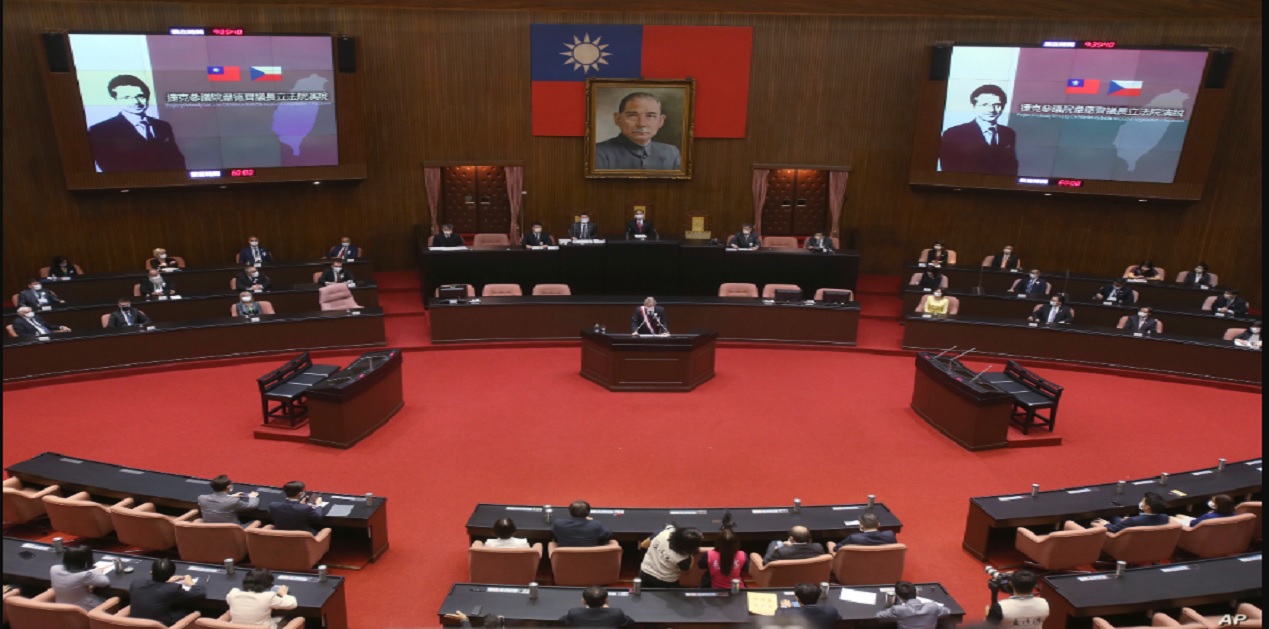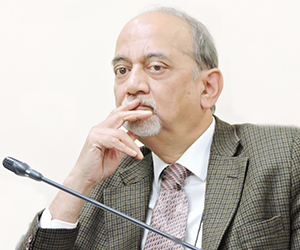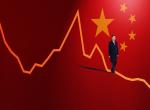The visit of the Czech Senate president to Taiwan has drawn sharp comments from China. Mr. Milos Vystrcil in his address to the Taiwanese Parliament on 1st September declared ‘I am a Taiwanese’. The expression of empathy with the Taiwanese people was evocative of President John F. Kennedy’s visit to Germany at the height of the Cold War when Kennedy declared Ich bin ein Berliner (I am a Berliner). The Chinese Foreign Minister Mr. Wang Yi had threatened Mr. Vystrcil the previous day that his country would make him ‘pay a heavy price’ for what he called “political opportunism”.1 Mr. Wang followed it up with another statement the Czech Senate President had “crossed a red line” by visiting Taiwan.2 The Chinese reaction was symbolic of Middle Kingdom syndrome, where it regards all other countries as tributaries or vassals. The Czechs have suffered the vicissitudes of history. They are extraordinarily gifted people. The independence streak and resistance to domination by big powers are deeply ingrained in the Czech psyche.
The Chinese Foreign Minister Wang Yi made his statement against the Czech Senate President’s visit to Taiwan while he was visiting Germany. This was the last leg of the trip to European capitals. If the visit was part of a charm offensive by China, the effect was lost somewhat by the reaction of EU countries. Mr. Heiko Maas, the German foreign minister described China’s threat against Mr. Vystrcil as “not appropriate.”3 Mr. Haas added “The EU acts ‘in close co-operation’ on foreign policy and treats its partners with respect……We expect exactly the same in return.’4 Mr. Martin Tlapa, the Czech deputy foreign minister, said that the Chinese statement was “inappropriate and inconsistent with the standards of diplomatic communication between the two sovereign countries.”
In the immediate neighborhood, Slovakia has supported the Czech Senate President. Slovak President Zuzana Caputova stated ‘Slovakia stands by the Czech Republic. In her Twitter message, she said ‘EU-China relations are based on dialogue and mutual respect. Threats directed at one of the EU members and its representatives contradict the very essence of our partnership and as such are unacceptable.’5
Mr. Milos Vystrcil was visiting Taiwan with a 90 strong delegation including Czech Parliamentarians, the mayor of Prague, and a large business delegation. He belongs to the ODS party, which has the largest number of seats in the Senate. The visit had been planned earlier by Mr. Vystrcil’s predecessor Mr. Jaroslav Kubera. At the time, the Chinese Embassy in Prague in an unusual move had written a letter to the Czech President Mr. Zaman that the Czech companies operating in the People’s Republic of China, such as Volkswagen subsidiary Skoda Auto or financial company Home Credit Group would suffer if the Senate President visited Taiwan.6 Unfortunately, Mr. Kubera died on the 20th of January. But the visit went ahead as planned. This shows that the initiative was not linked to individual predilection, and had broader support.
The EU accepts the One China policy. But invoking it to rule out all interaction with Taiwan by other countries, and threatening retaliation if they do not do so has no justification. Going beyond criticism to threatening retaliation against commercial interests of the country concerned is worse. This amounts to attaching political conditions to trade relations. The Chinese threats are particularly ill-advised. China is the main beneficiary of trade relations with the Czech Republic. While Czech exports to China were US$ 2.47 billion in 2019, the Chinese exports to the Czech Republic were US$ 28.25 billion.7
What complicates the situation for holding out the threat for trade retaliation to Skoda Auto is the fact that it is a subsidiary of German automaker Volkswagen. Thus the threat applies as much to Germany as to the Czech Republic. On an EU-wide plane too, China is the main beneficiary of the trade relations. While EU exports to China are Euro 198 billion, the Chinese exports to EU were Euro 375 billion.8 China has to learn that it does not help to threaten its valued customers.
While China has taken up issues with smaller EU countries for not allegedly respecting One China policy, does it respect the EU’s procedures and norms? While EU Member States have bilateral summits with other countries, on the regional level most partners chose the EU mechanism, which involves meeting under the aegis of EU institutions. The EU has a well-developed system and most countries have respected it. But China sought to drive a wedge by holding a 16+1 Summit with some of the EU Members. Most of these belonged to the Eastern and Southern States. There may now be some re-thinking on their part.
The EU, unlike the US, has to take collective decisions. This slows down the speed of decision-making and allows for a certain amount of dissonance in their policies. But now perhaps there is a growing realization on the part of EU countries to take a unified stand on China. Despite the Brexit, the UK’s position on the Hong Kong issue has been supported by the EU.
The EU Member States are open democracies. China has unscrupulously tried to take advantage of this system. Last year, the Chinese Embassy in Prague was involved in funneling money to some functionaries running Czech-Chinese Centre at Charles University. The Center was formed to promote cultural relations. The University fired Mr. Milos Balaban, who was running the Centre and had received money from the Chinese Embassy through a company Centre for Security Policy (SBP). The University also closed the Czech-Chinese Centre.9
Apart from the Taiwan issue, China has also tried to arm-twist EU Member States on the Tibet issue. In response to Dalai Lama’s visit to several EU capitals in 2009, China canceled EU-China Lio Xiabo in 2010. There was a similar cooling off of relations with Slovakia following Slovak President Andrej Kiska’s meeting with the Dalai Lama in 201610. Late President Havel was a great supporter of the Tibetan cause and regularly invited the Dalai Lama to the Czech Republic.
China’s aggressive response to contacts with Taiwan is having a counter-productive effort on its attempt to isolate that country. China’s policy for seeking reunification with Taiwan has seen a perceptible hardening of the posture with dropping the reference to ‘peaceful’ – the re-unification will not be pursued by any means. China has stepped up military exercises and is testing the US resolve. This too may backfire. Last month the US Health Secretary visited Taiwan. Taiwan poses no military threat to the Peoples’ Republic of China. But its very existence as a prosperous, democracy exercises a pull on the people of the mainland. This is seen as a threat by the Communist leadership to its hold over that country.
Taiwan, like PRC, accepts the One China policy. After seeing the fate of Hong Kong, there is much less scope for believing that ‘One China, Two Systems’ philosophy has any chance to survive. Recently, the Taiwanese government has started trying to diversify its trade relations away from China. It has also offered incentives to the Taiwanese companies for ‘near-shoring’ of investment by bringing it back from mainland China.
Endnotes
- The Financial Times, ‘I am a Taiwanese’: Czech Senate president addresses parliament in Taipei, September 1, 2020
- Ibid
- Ibid
- Ibid
- www.spectator.sme.sk, President Caputova: Slovakia supports the Czech Republic in dispute with China, September 3, 2020
- Reuters, China threatened to harm Czech companies over Taiwan visit: letter, February 19, 2020
- www.tradingeconomics.com
- www.consilium.europa.eu
- Prague post, Center Amid Scandal, November 15, 2019
- The Diplomat, How Will China Respond to the Czech Senate President’s Visit to Taiwan, September 3, 2020.
(The paper is the author’s individual scholastic articulation. The author certifies that the article/paper is original in content, unpublished and it has not been submitted for publication/web upload elsewhere, and that the facts and figures quoted are duly referenced, as needed, and are believed to be correct). (The paper does not necessarily represent the organisational stance... More >>
Image Source: https://im-media.voltron.voanews.com/Drupal/01live-166/styles/sourced/s3/2020-09/ap_taiwan2.jpg?itok=Ibdhupg1











Post new comment